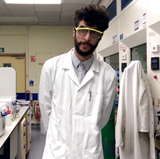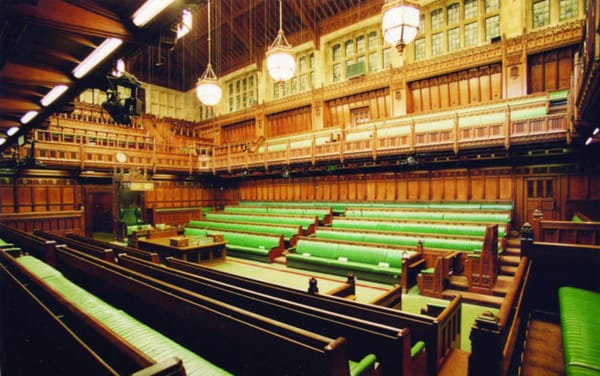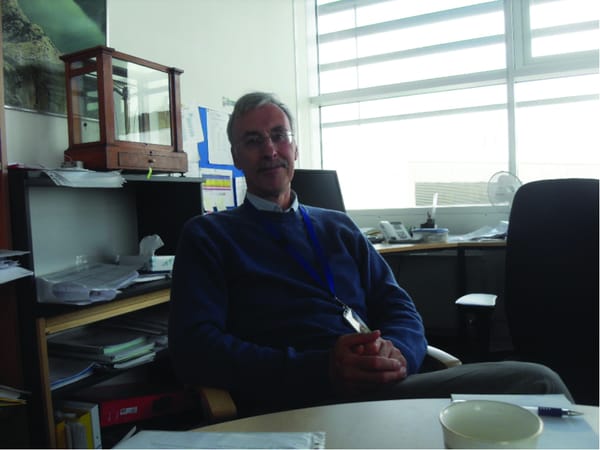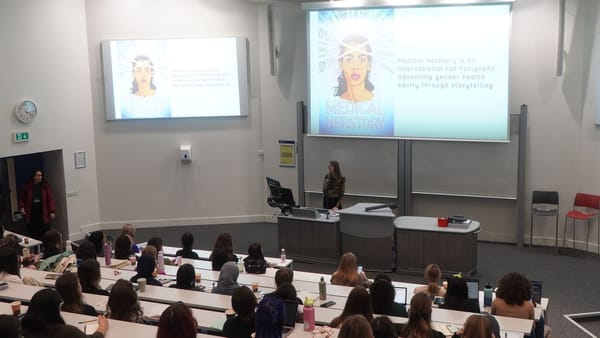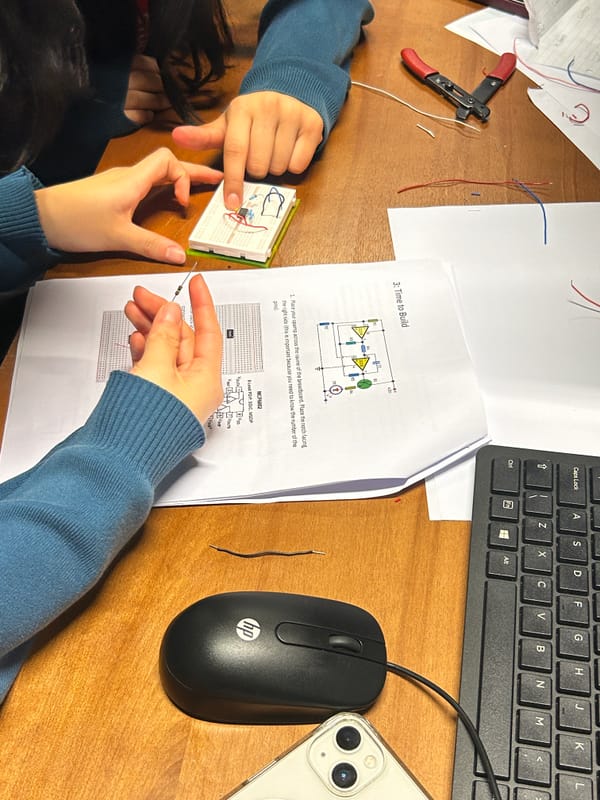Staff and students rally around Holland Club Campaign
Call to protect staff bar attracts hundreds of members

The future of Imperial College’s staff bar, the Holland Club, is in serious doubt this week as it emerged that college catering are potentially planning on converting the space into a new food outlet.
The news sparked widespread controversy online amongst both Imperial’s staff and postgraduate community, with the “Save The Holland Club” Facebook group receiving nearly 600 likes in less than four weeks. The page has become a hub for past and present patrons of the bar to express their shock and outrage at the news, while the page itself has been updated almost daily with information about the potential closure.
The move to replace the Holland Club with a new catering facility comes at the beginning of a busier than usual year for Imperial College Commercial Services, which as well as attempting to improve services provided to students and staff, will also be playing hosts to members of the Swiss and Japanese Olympic teams during the summer.
Currently, Commercial Services are carrying out a feasibility study into how to improve the west basement of the Sherfield Building and will consider, amongst other things, “what additional catering and amenities would best serve the needs of staff and students on the South Kensington Campus”. Meanwhile the Holland Club management have been left feeling “in limbo,” unsure whether or not to carry on with their own planned improvement works or even if the Holland Club will remain.
Various sources have stated to Felix that this will be a major project with a budget of around £4m, and the feasibility study has a wide remit of possible amenities that could be offered, including a bar, cafeteria or restaurant, and also allowing space that could be usable by Union clubs and societies.
In correspondence with Felix, Jane Neary, the head of Commercial Services at Imperial, commented that the food facilities on the South Kensington campus had reached saturation point and; despite being able to provide catering services to a footfall of 2.5m people last year; were unable to meet demand.
Furthermore she stated that, “Student feedback has also highlighted that taught postgraduates would welcome more appropriate common room provision on campus,” in reference to the fact that the rules of the Senior Common Room state that taught postgraduates are not allowed to eat there.
Student feedback has also highlighted that taught postgraduates would welcome more appropriate common room provision on campus Jane Neary, Head of Commerical Services
This is a problem that the College readily acknowledged and has been working towards solving, as highlighted by an interview with The Reporter (September 27 2011) in which Mrs Neary stated: “[Commercial Services] would like to create more space for the College community to interact socially, especially taught postgraduates … [who] don’t really have a place to call their own. We would like to change that, providing a catering and social space that could be open out-of-hours and at weekends.”
In her correspondence with Felix, Mrs Neary went on to explain that the purpose of the feasibility study is to evaluate the space currently occupied by the Holland Club and determine which facilities would be required to best suit the needs of the College community; whether the new facilities should be open to everyone or just a select group (i.e. staff and postgraduates, both taught and research) and “How the ethos of the Holland Club might be maintained in any new facilities.”
Kevin Young, the manager of the Holland Club, told Felix that his main complaint is the way he feels that College has not only failed to consult him on their plans for improving postgraduate facilities, but also what he believes to be concerted efforts on behalf of members of the feasibility study staff to not share information about it with him.
Specific examples he included to justify his belief included finding senior members of Properties Management and Commercial Services looking around the inside of the bar at 7am on a Wednesday morning in early November without express permission from Mr Young, and original requests made by college for allowing access for architects and engineers stating that the work done was for “updating the college records.”
Mrs Neary stated that the reason the Holland Club committee hadn’t been consulted was because there had been nothing to consult on, and that now that the plans are progressing they have been meeting with the panel in charge of the feasibility study.
The Holland Club itself is named after Sir Thomas Holland, former Rector of Imperial College London. It is technically a private members club for non-academic staff, while postgraduate students (both taught and research) are allowed in as guests. In practice the bar is heavily used by PhD students when they don’t want to drink with undergraduates in the union or the cast of Made in Chelsea in the South Kensington locals, which can be prohibitively expensive.
The Holland Club itself is self-governed and not for profit, any money made from the running of the bar is re-invested into the bar. Mr Young also stressed that the Holland Club management was not blind to the increased need of postgraduate students, especially as they now made up the majority of its customers. The Holland Club committee was already looking as far back as last October into plans to re-open the kitchen bring in network points for internet access and purchase a coffee machine.
As it stands the coffee machine has been bought with a three-year service contract, and will be installed within the next few weeks, a point that particularly annoys Mr Young as it may now potentially be ripped out by Easter. This uncertainty about the future has affected the day-to-day running of the club, and also on the ability of the club to go about carrying out its own improvements. Plans to start serving light pub food have been shelved until the Holland Club can be sure the required equipment and staff are worth the investment.
It is hoped that a compromise could be reached between the goals set out by the Feasibility study and the current Holland Club. The Feasibility study itself does plan to invite input from students and staff – including members of the Holland Club – on what facilities are desired and how the project should proceed. However Mr Young expressed regret that the Holland Club hadn’t been included in the process from the very start. The primary concerns that he wants addressed in the Feasibility study are that the new facilities will also be self–governed in the same style as the Holland Club, and that communal spaces and function rooms remain.
Mr Young expressed regret that the Holland Club hadn’t been included in the process from the very start
Imperial College Union responded to the ongoing issue with the following statement: “Until the feasibility study comes back it is impossible to comment on what potential plans there are for the space the Holland Club occupies.
“It is important to note that the Holland Club was setup as, and still remains, a bar for non-academic staff of Imperial College London.
“The Union will always be welcoming to plans that seek to improve the amount of social space available to our members. It can only be seen as a positive move that College are looking to invest several million pounds in more student facilities.
“We look forward to submitting our response to any plans that are put forward by College and Commercial Services.”
As a worst-case scenario, Mr Young is willing to discuss the moving of the Holland Club to new premises. This is not the first time in its 62-year existence that it has been moved. Originally starting as a room in 15 Princes Gardens – a location Mr Young jokingly said he wouldn’t mind moving back to – it was moved to the Huxley building, before being moved into its current site in the basement of Sherfield 16 years ago, which up until that point had been home to Imperial’s telephone exchange.
While most Holland Club bar users Felix spoke to weren’t averse to the Holland club undergoing a renovation, there was a fear on how said renovation would be done. This was best expressed by one punter questioned who feared that the ‘pub’ character would be lost to the ‘Ikea catalogue’ interiors endemic to Commercial Services’ most recent projects, the Eastside bar and the Queen’s Tower Rooms.
The various outcomes of the feasibility study, which are due in the second quarter of 2012, will be reported in Felix as and when they become available.

